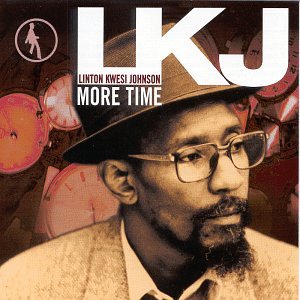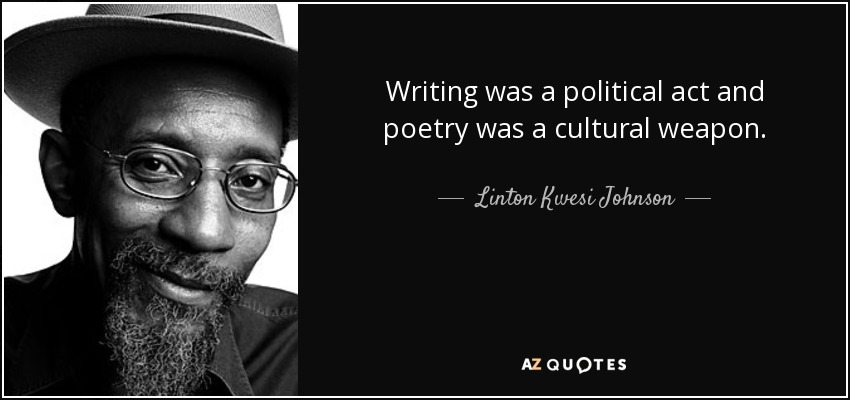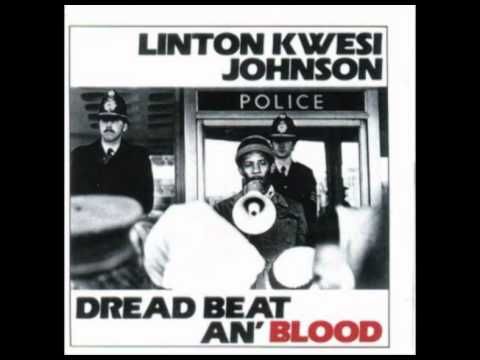|
Getting your Trinity Audio player ready...
|
Reading Time 5 mins
Wednesday November 25, 2020

Author, founder of Dub poetry, former Black Panther and presently [2005] art editor of the journal Race Today, Linton Kwesi Johnson became the first Black poet and the second living poet to be included in Penguin Books’ iconic Modern Classics series with the publication of “Mi Revalueshanary Fren: Selected Poems” in 2002.
Born in rural Jamaica and migrating to Britain at age 11, Johnson, now 52, currently resides in South London. In a recent opinion poll he was ranked 22 on a list of the top 100 Black Britons of all times. He is honorary visiting professor at Middlesex University. His recordings have sold millions of copies.
Johnson has been at the forefront of antiracist struggles and cultural resistance for many years. He had his own brush with the police when he was arrested in 1972 for his political activism.
Martin Felix: Congratulations to you on your 26th year as a reggae poet/recording artist. One of the things that become immediately apparent to people familiar with your work is the interconnection of art and politics. Why has politics remained so consistently integral to your work?
LKJ: Well, I began writing verse as a consequence of becoming politically conscious. It has been a consistent feature of my work because I have chosen to write about political things and that’s what inspired me in the first place. As a young person, when I first became interested in poetry, I was attracted to those poets who wrote political verse and that’s the way it has been.
 Martin Felix: Who were some of your early inspirations? I understand that Dr. W.E.B. Du Bois was one of them.
Martin Felix: Who were some of your early inspirations? I understand that Dr. W.E.B. Du Bois was one of them.
LKJ: Yes, “The Souls of Black Folk” literally changed my life because it opened up a whole new vista for me. And other writers that inspired me early in the formative period were people like LeRoi Jones, now known as Amiri Baraka, Gwendolyn Brooks, Aimé Césaire, the Martiniquan poet of Negritude, and Martin Carter, who is my favorite political poet. And other people that I have read in translation like Nicolás Guillén from Cuba and so on. Those are just some of the political poets that have influenced me. I mean I have been influenced by other poets but not necessarily political per se. But those were some of the important ones.
Martin Felix: Can you tell us about your early life in Jamaica and how it shaped your aesthetics?
LKJ: My early memories of Jamaica were those of a child, you know. I was born in a rural area called Chapelton, which is in middle Jamaica in the parish of Clarendon. It’s hill country, one of the mountainous parts of Jamaica. My grandparents were peasant farmers. One of my grandfathers was a carpenter and the other one was a farmer — they were both farmers really. We were very poor people.
When my mother migrated to England I was about 7 or 8. My sister and I went to live with my grandmother in a place called Sandy River, and that’s real deep rural Jamaica where there was no street light, no running water, you bathe and fetch your water from the river. We were active in the economic life of the village, helping with harvesting sugar cane, planting and peeling ginger and other chores. It was, I guess, the happiest time of my life. I love the rural life — going fishing, swimming, shooting birds, making your own toys, making your own instruments, because we had no radio, no TV and so on. And that’s when I learned my Jamaican folk culture, which put me in good stead when I moved to England. In fact, it was my Jamaican language and my Jamaican roots that became a weapon of resistance in a culture of racism in England.
Martin Felix: What was your motivation?
LKJ: I was motivated to write poetry because of politics, because for me poetry was the vehicle to articulate feelings, emotions and frustrations of my generation, Black people. A lot of the verse that I wrote was informed by activities that I was involved in and campaigns that I was involved in. For example the George Lindo campaign — I wrote a poem about that. The campaign to free our editor, Darcus Howe, from prison — I wrote a poem about that. The campaign around social change — the SUS law [SUS for “suspicion”] — Black youth of my generation were criminalized and there was a campaign against that to which I contributed a poem, “Sonny’s Letter.” I saw my verse as documenting and chronicling if you like, some of these struggles that I was involved in.
Martin Felix: A very strong theme in your works, particularly your earlier writings like “Dread Beat an’ Blood,” was antiracist resistance. How much have conditions changed since then?
 LKJ: Conditions have changed significantly. What happened is that we built autonomous organizations, political, cultural and social ones, and waged struggles against marginalization, waged struggles for social justice, antiracist struggles and struggles against police oppression. We’ve had riots and rebellions and as a consequence things began to change.
LKJ: Conditions have changed significantly. What happened is that we built autonomous organizations, political, cultural and social ones, and waged struggles against marginalization, waged struggles for social justice, antiracist struggles and struggles against police oppression. We’ve had riots and rebellions and as a consequence things began to change.
The turning point was in 1981 when we had the first riot, which followed the murder of 13 Black children at a party by fire, by arson in New Cross. And the Black People Day of Action which happened that year when 20,000 people marched to Hyde Park. The British authorities took note of the fact that we had some power and they put in motion some policies to speed up the emergence of a Black middle class.
The second turning point was the murder of a Black youth named Steven Lawrence by some fascist, some racist, which resulted in a public inquiry led by [Sir William] McPherson. That was the first time that the British establishment admitted that there was something called institutional racism within the police force and set in motion policies to do something about that. So since that time we have moved from a position of marginalization to a position of power.
Martin Felix: In “Di Good Life,” you focused on Old Man Socialism. Do you see socialism as a viable project?
LKJ: Old Man Socialism was a kind of metaphor for C.L.R. James really, who was, as you know, a great independent Marxist thinker who has dedicated his life to revolutionary change.
Martin Felix: Is socialism still a viable alternative?
LKJ: Well, we have to have some kind of alternative vision. I mean things don’t have to be the way they are and capitalism can’t be the best way to run our lives, it can’t be the best economic system possible. There must be some alternative, yes. And I still cling to the belief that capitalism is not the best economic system available to us.
 Martin Felix: Anything you want to say to your fans throughout the world?
Martin Felix: Anything you want to say to your fans throughout the world?
LKJ: I just want to say this to the young people: I think it is important that young people know that they have a responsibility and that the world does not have to be the way it is and that they have the power to do something about it and that they should use that power.
First published August 12, 2005
